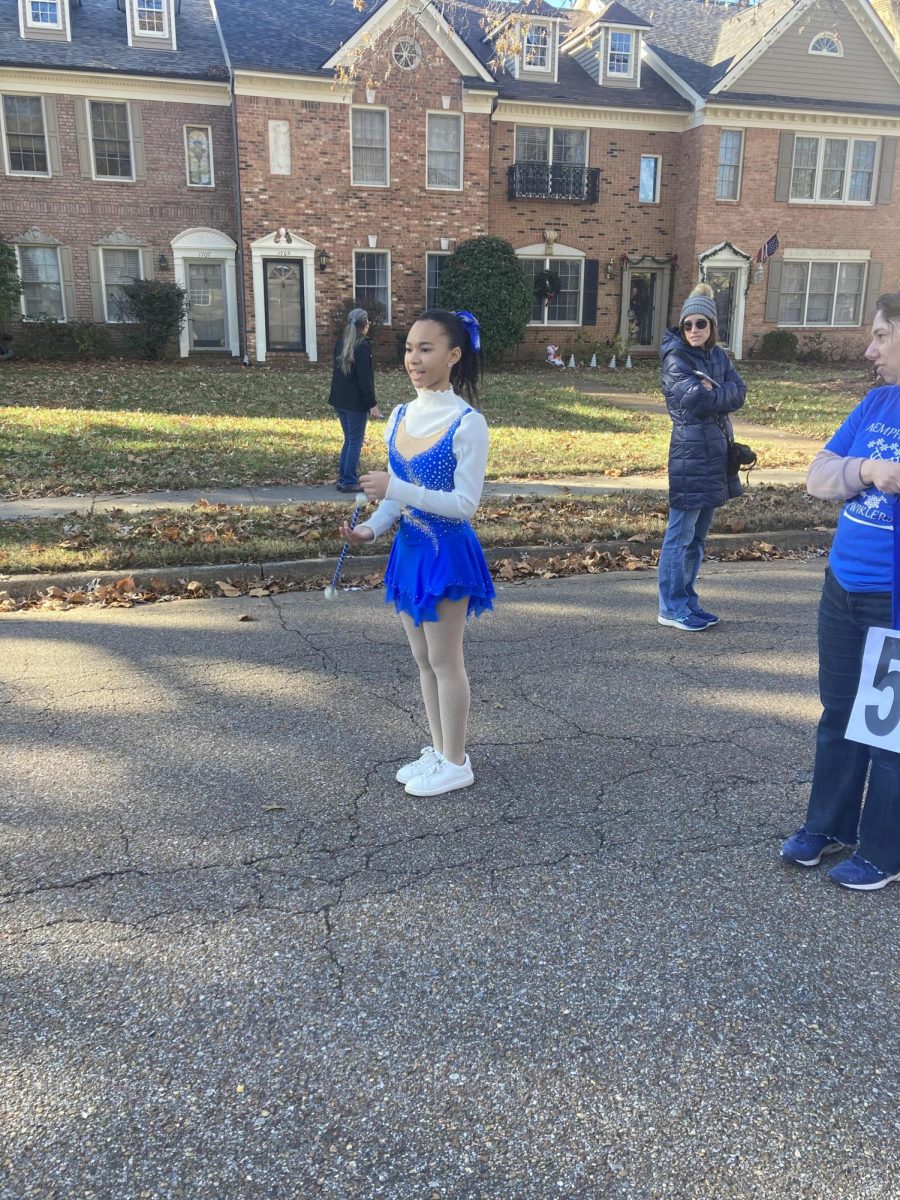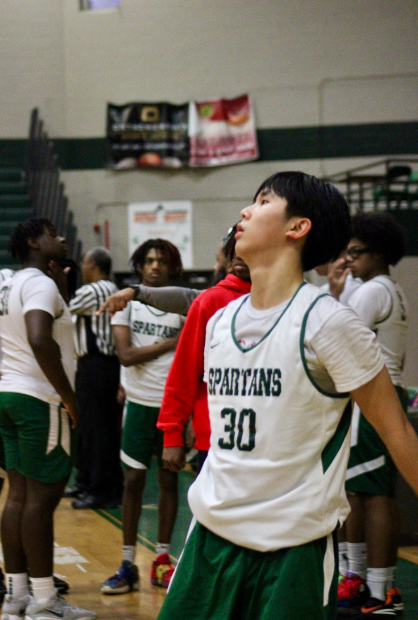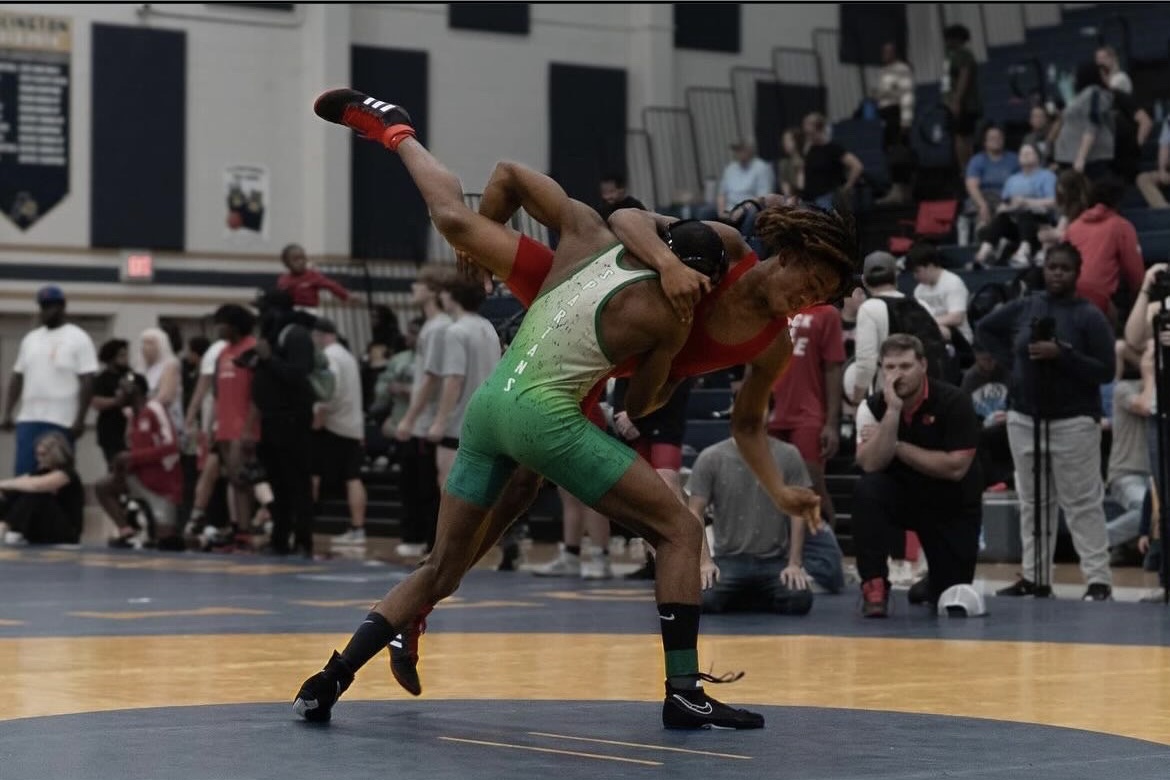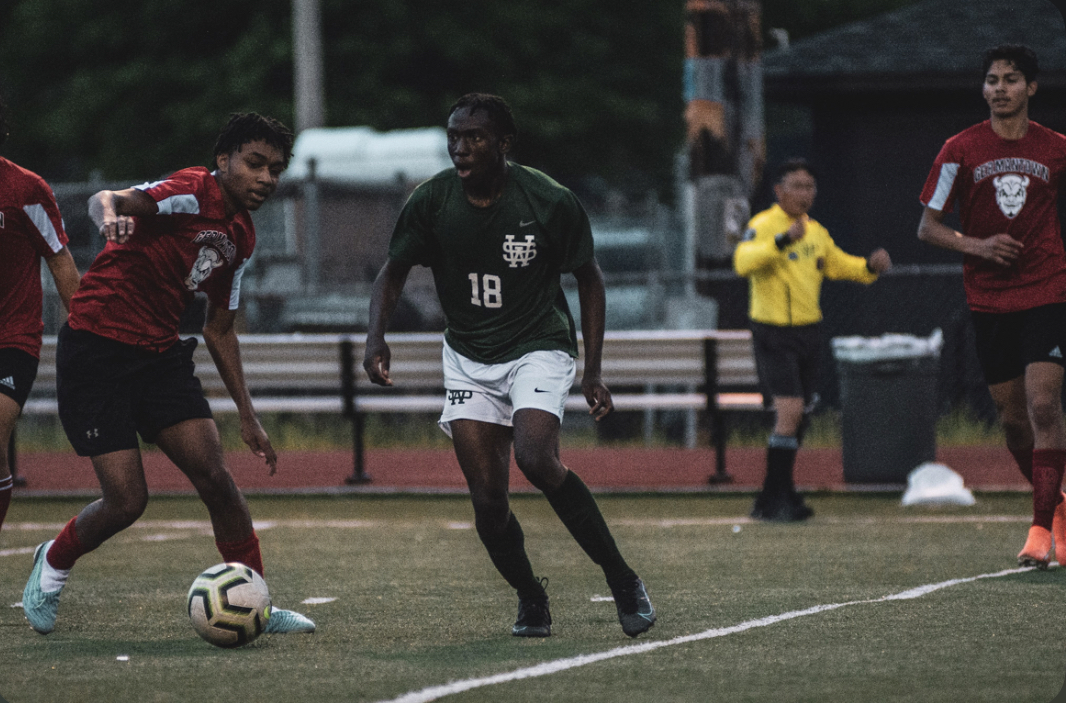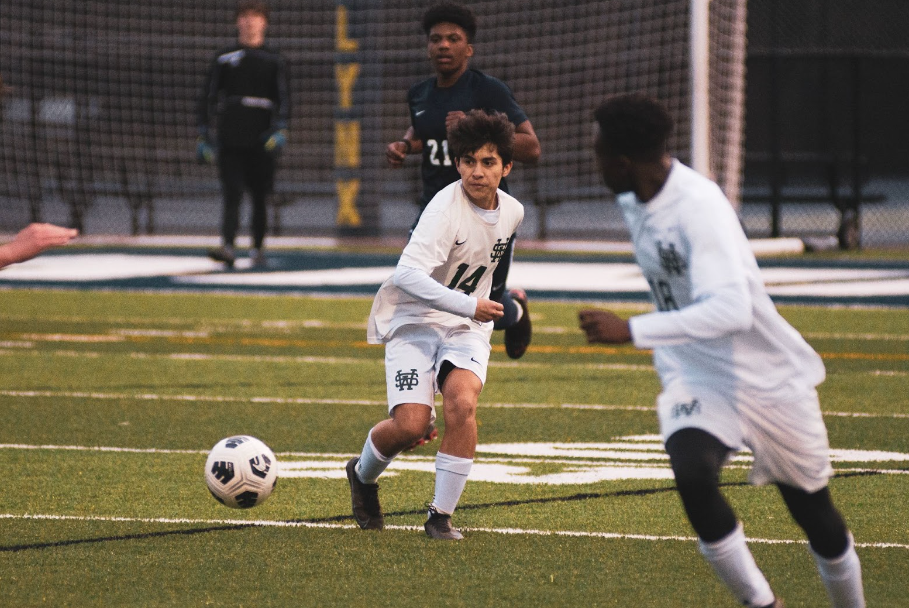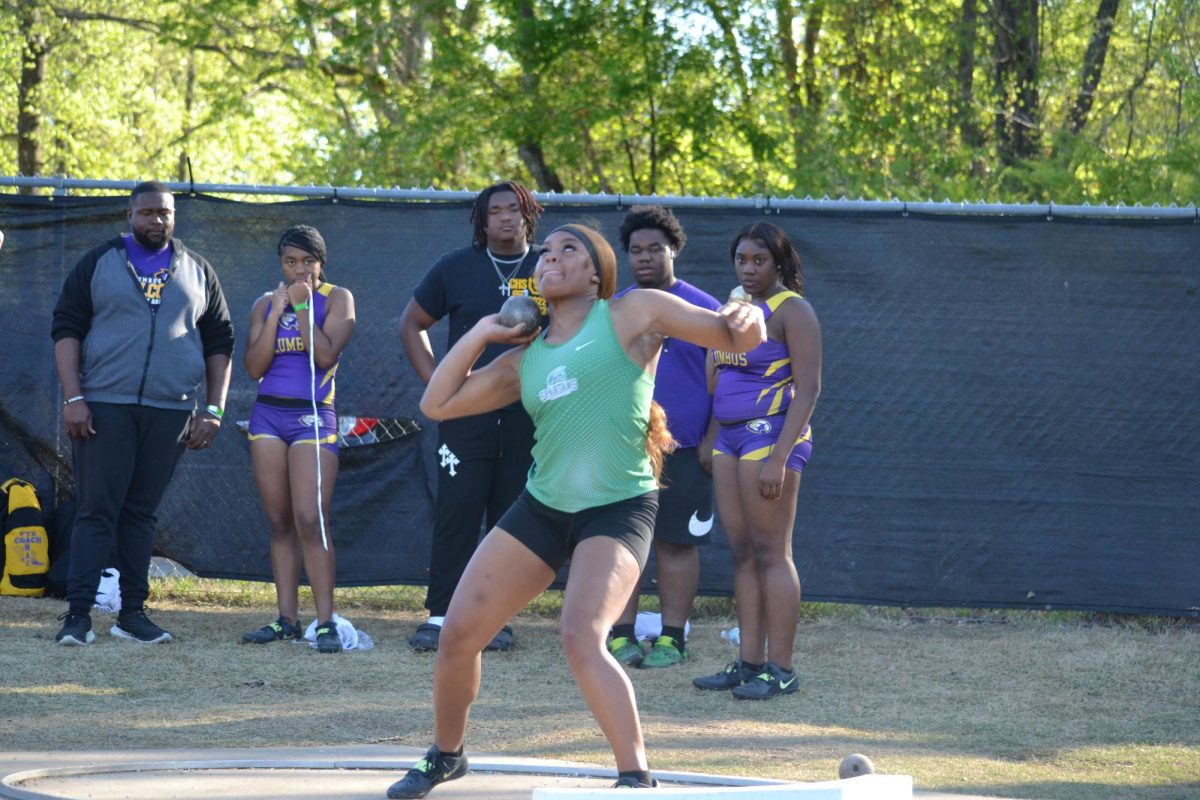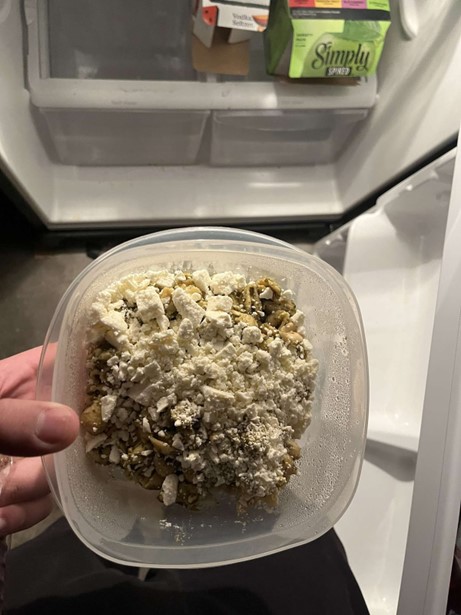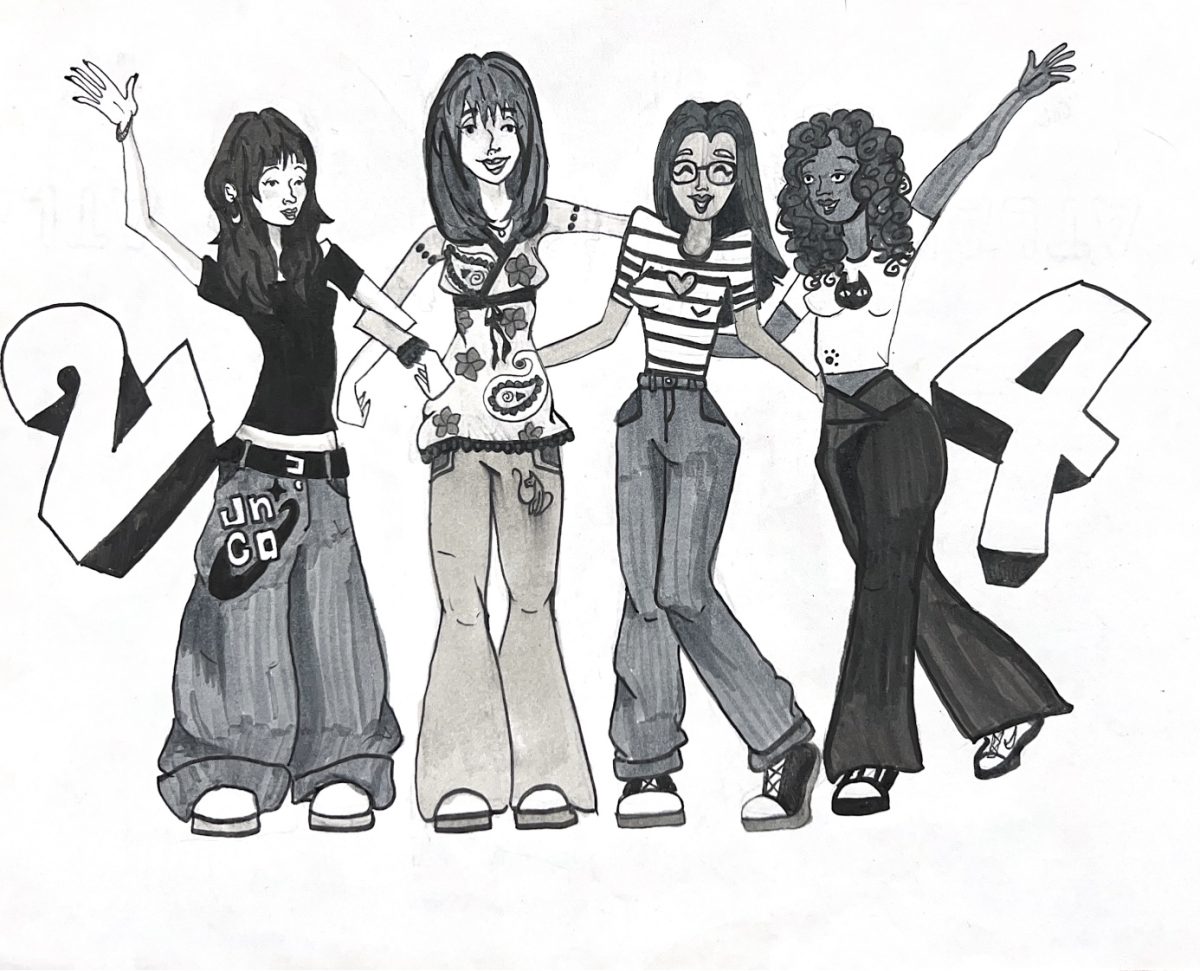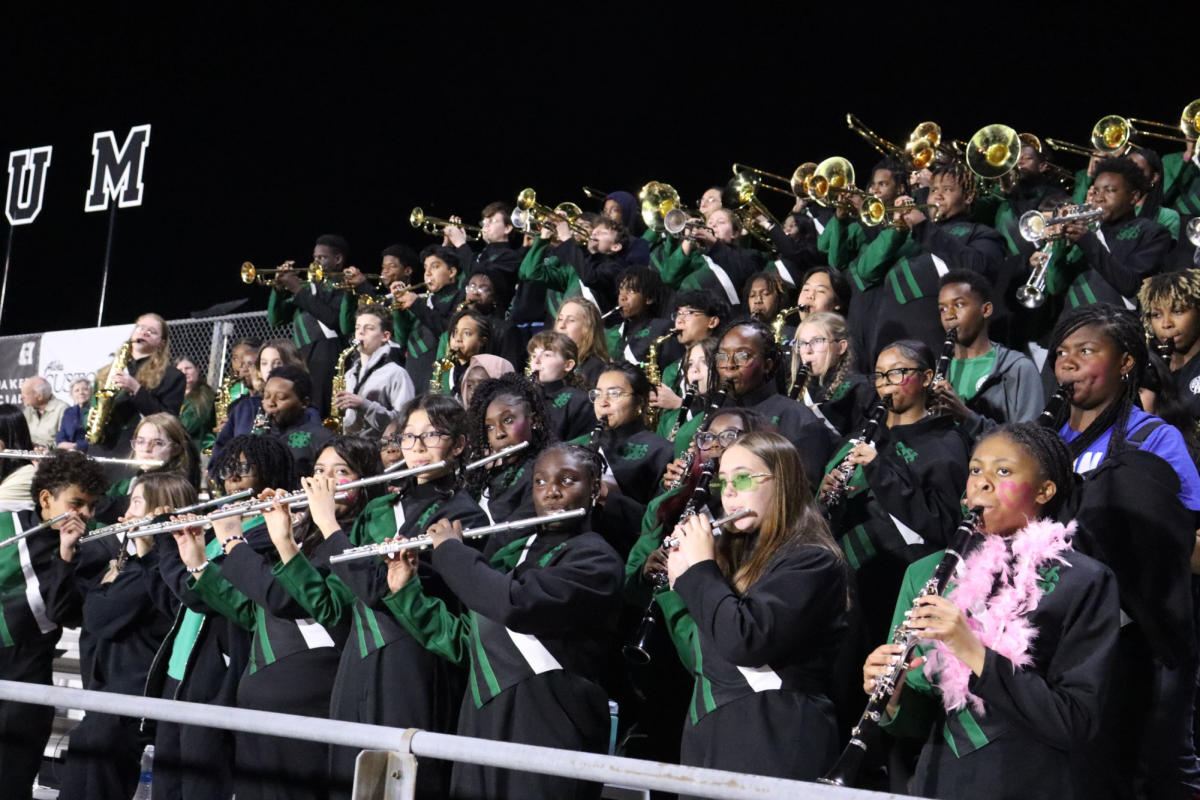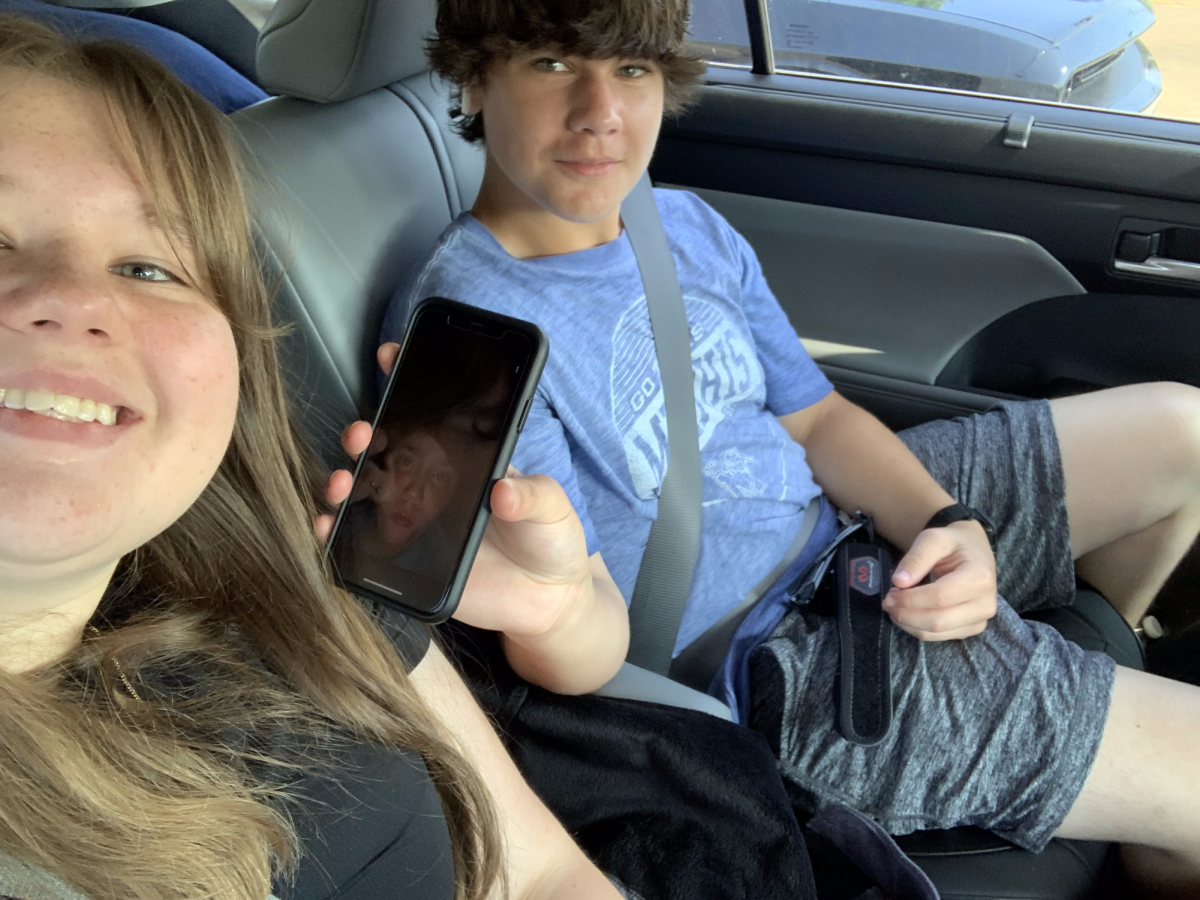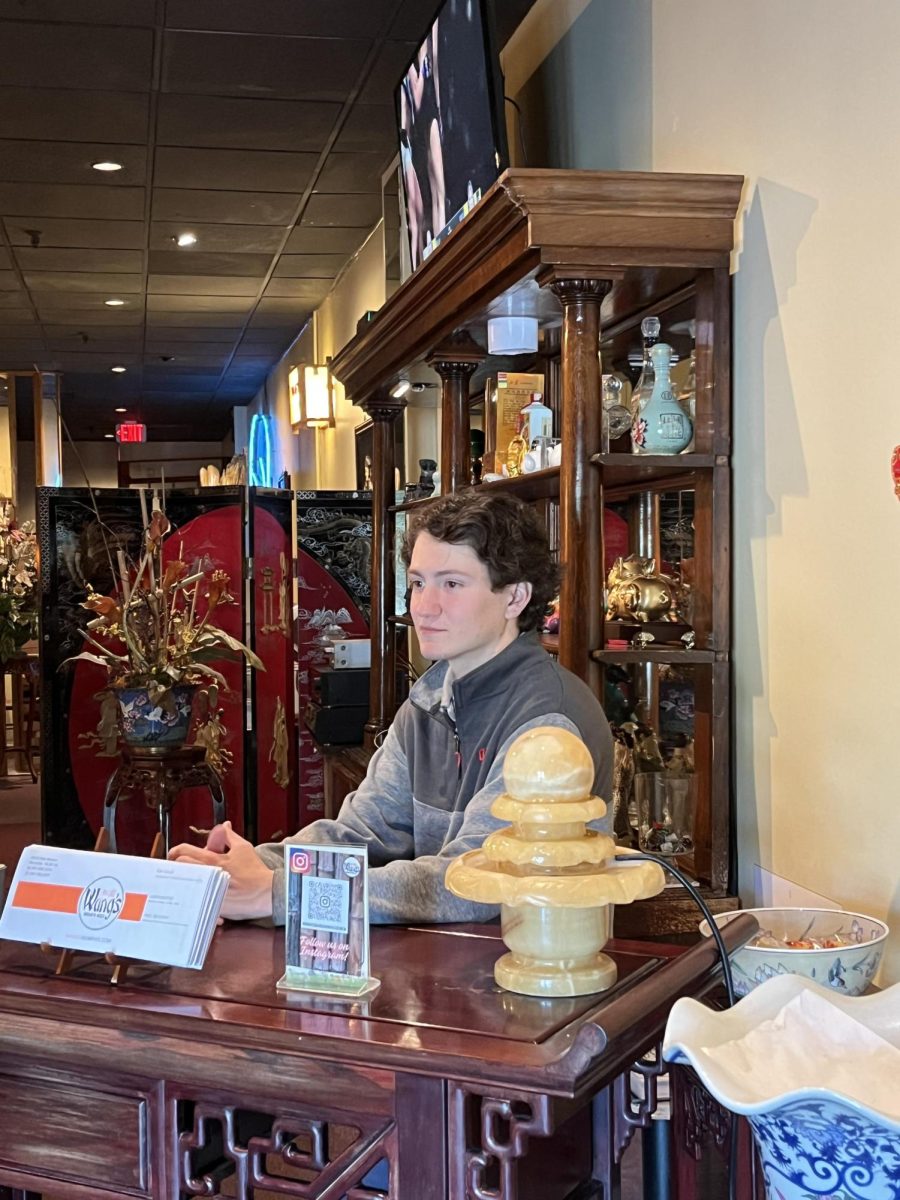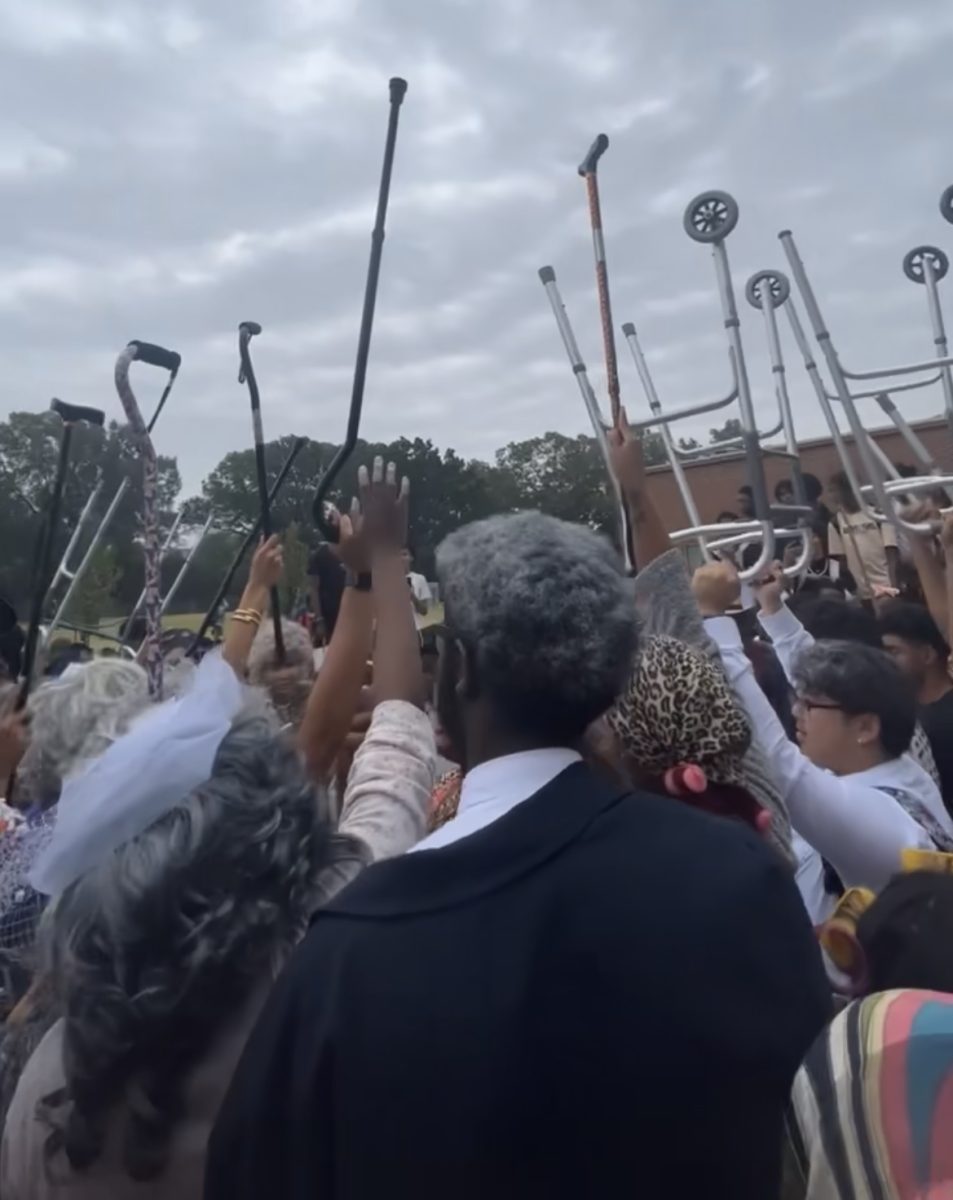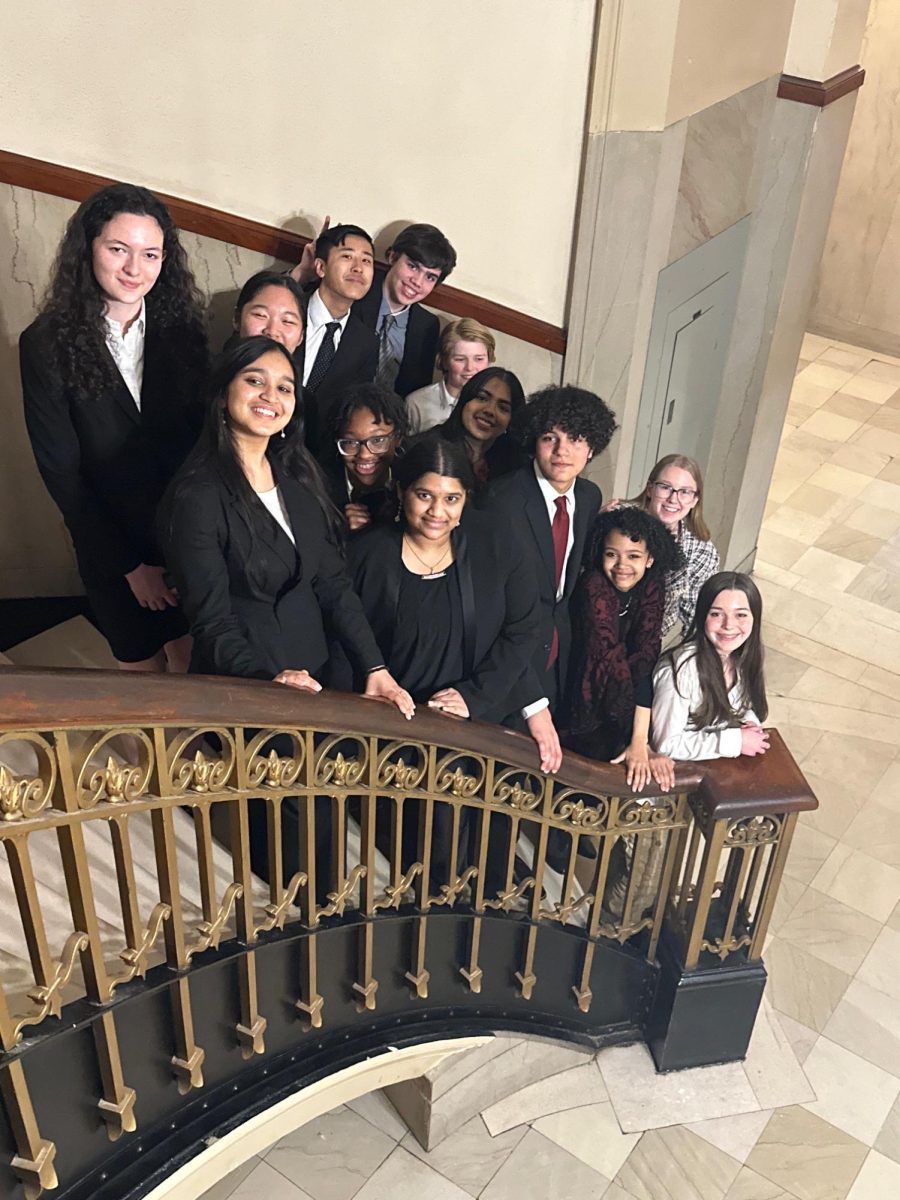One month remains. You will soon don your cap and gown, get on stage and receive your diploma. Many seniors have been ardently anticipating this event for the last few months; however, for the freshman class, this monumental event in the seniors’ lives is admittedly much less monumental to them. Freshmen don’t typically have classes with seniors, primarily due to differences in class difficulty and limitations on which grades can take certain classes. Though this trend has some notable exceptions — especially with some freshmen entering White Station with a high school math credit under their belt — the classes and activities with the most senior-freshman interaction are Junior Reserve Officers’ Training Corps (JROTC), band, orchestra and sports teams.
“[I have the most interaction with seniors in] ROTC,” London Jordan (9) said. “Just like, ROTC has a lot of seniors while in other classes — I only take regular ninth-grade classes — I don’t see seniors a lot.”
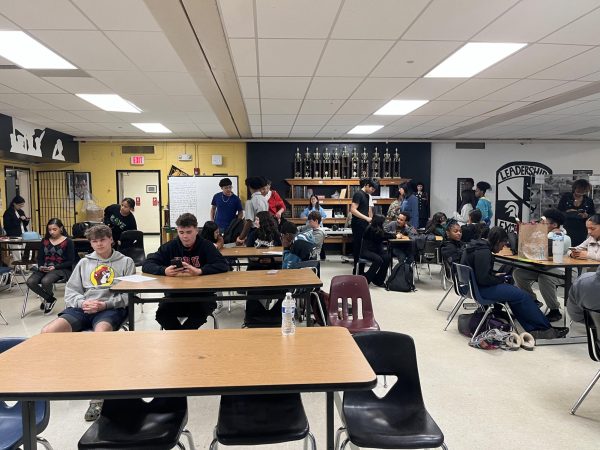
(AMY ZHANG//USED WITH PERMISSION)
JROTC’s seventh period is the honors period and holds practically all of the battalion leadership positions. These positions are often held by seniors due to their experience in the JROTC program, so a large number of seniors are concentrated in this class period. In order to facilitate freshmen cadets’ entry into the JROTC program, freshmen are often put into this period to be mentored and taught by the senior cadets.
“Seniors taught me a lot for like time management, marching … I feel like Sarah [Terhune] taught me more than other seniors, because she does Knowledge Bowl (an academic team in the JROTC program), but other seniors like Shivani [Menon] and Eleanor [Gunn] … teach me how to manage my time or [to] understand the concept of ROTC,” Jordan said.
For band and orchestra, the classes one takes are primarily dependent on one’s own skill level with their instrument. Subsequently, freshmen and seniors interact quite often in these classes by being at similar musical skill levels. Like with JROTC, seniors regularly teach their underclassmen about their instruments or about other musical techniques.
“Patience,” Melany Mauricio-Bustamante (9) said. “I learned a lot of patience.”
Compared to the freshmen, the seniors have experienced three to four more years of high school. They have walked the halls an endless number of times compared to the freshmen’s couple hundred and have taken about 21 classes compared to the freshmen’s seven. From a freshman perspective, talking with such people who feel so much older and more experienced may feel peculiar.
“It’s very weird, very weird at that,” Jordan said. “They can already read me. I feel like they already know what’s going to happen and I’m kinda scared about that. They’ll be like ‘you’ll be one of those,’ and I’m like ‘one of what?’”
The teachers for mixed-grade classes such as Karen Bolden (SGM), Brian Sims and Andrew Palmer must use a different teaching approach than if they taught just one grade level. Bolden often delegates teaching the freshman cadets to the seniors to give them mentorship experience and to give the freshman an individual experience with learning JROTC skills.
“[Mr. Sims] handles the grades, like if there are incoming 9th graders, and they don’t know certain things — rhythms, notes — then people that are older than the incoming 9th graders teach the 9th graders, they guide them,” Mauricio-Bustamante said. “He wants everybody to get along.”
Ultimately, many freshmen are grateful for the seniors and everything they have taught them Many are able to look back at their first year in high school and recognize how much the seniors have helped them.
“Yes, [I’m] definitely [grateful],” Jordan said. “I feel like when it comes to senior leadership versus sophomore/junior leadership, I feel like [senior leadership] keeps a balance between the older ones and the underclassmen; I feel like without seniors there wouldn’t be a balance and the juniors would overpower.”








